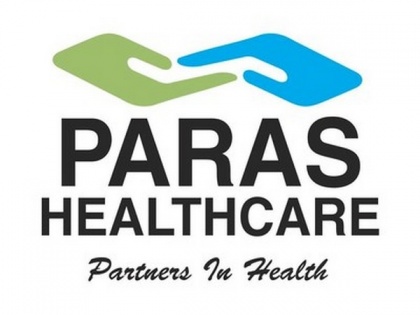Panchkula's first cochlear implant surgery performed at Paras Hospitals
By ANI | Published: April 17, 2020 02:57 PM2020-04-17T14:57:25+5:302020-04-17T15:15:09+5:30
To create awareness on hearing loss in children and cochlear implant surgery, a team of doctors from Paras Super Specialty Hospital Panchkula addressed the media person today.

Panchkula's first cochlear implant surgery performed at Paras Hospitals
Present on the occasion were Dr Sanjay Khanna, Senior Consultant & Head , Dept of ENT and Dr Lokesh Mittal, Associate Consultant from Paras Specialty Hospital, Panchkula.
"About 226 million Indian are suffering from disabling hear loss and only 15000 cochlear implant have been done in India till date", said Dr Sanjay Khanna while addressing the media persons.
Deafness or hearing loss means when a person is unable to hear. Disabling hearing loss refers to hearing loss greater than 40 decibels. According to WHO, around 466 million people worldwide have disabling hear loss, out of which 266 million are Indian and 34 million are children.
60 per cent of childhood hearing loss is due to preventable causes. Hearing loss may result from genetic causes, birth complications, ear infections, few drugs, noise exposure and ageing. It has been estimated that by 2050 over 900 million people or one in every ten people will have disabling hearing loss; however, India has already reached this scenario.
The majority of people with disabling hearing loss live in low- and middle-income countries. Approximately one third of people over 65 years of age are affected by disabling hearing loss and the prevalence in this age is greatest in South Asia, Asia Pacific and Africa.
WHO refers the 'hard of hearing' to those people who have hearing loss ranging from mild to severe. These people can get benefit from hearing aids, cochlear implants and other assistive devices.
However, those patients including children and adult who are having significant or profound hearing losses can be only benefitted from cochlear implant surgery.
"Cochlear implant is a gold standard surgery for children who are profoundly deaf (hearing loss more than 90 decibel). The earliest this device is implanted, the sooner a child can hear and speak", said Dr Sanjay Khanna who has performed the first cochlear implant surgery of Panchkula in a four-year-old child at Paras Hospital, Panchkula.
Dr Sanjay Khanna has wide exposure and expertise in cochlear implant surgery and sleep apnea surgery.
He further enlightened that in a surgical procedure of three-four hours implant is placed inside the inner ear of the patient. After this implantation a child has to undergo speech therapy session for at least two years. With the help of this procedure deaf and dumb children can learn to hear and speak.
To diagnose if a child can hear or not, early hearing screening of new born is necessary. OAE, which is a basic hearing screening test, is performed to check whether a child can hear or not in future or the child is hearing impaired.
This test can be done after second day of the birth. In more advance countries like US, Europe and Australia more implants are being done in adult population as elderly patients are unable to understand speech despite the best quality hearing aids.
"Cochlear implant is an electronic device that provides sound signals from damaged or non-functioning part of inner ear to the brain. Cochlear implant has two parts, the first part is surgically implanted into the bone surrounding the ear which consists of a receiver stimulator that decodes and sends an electrical signal to the brain. The second part is an outside device which is made up of a microphone or receiver, speech processor, and an antenna. This part receives the sound, converts it into an electrical signal and sends it to the inside part of the cochlear implant', said Dr Sanjay Khanna who gave an insight on this device.
Dr. Sanjay Khanna said that in Haryana more than 115,000 people have some form of hearing loss and this number is increasing. To check the increase in number of children going undetected and subsequently crossing the appropriate age for treatment, a Universal Newborn Hearing Screening (UNHS) program is urgently needed in Haryana.
Paras Hospital, Panchkula has all facilities for early diagnosis, intervention and habilitation for children identified with various forms of hearing loss.
"In India, four in every 1000 children suffer from severe to profound hearing loss, with over 100,000 babies born with hearing deficiency every year. The estimated prevalence of adult-onset deafness in India is 7.6 per cent and childhood onset deafness 2 per cent, according to Union Health Ministry. Hearing disability is the second most common cause of disability in India", said Ashish Chadha, Facility Director, Paras Hospital, Panchkula.
This story is provided by PRNewswire. will not be responsible in any way for the content of this article. (/PRNewswire)
( With inputs from ANI )
Open in app